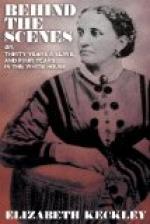* * * * *
My fourth runaway trip.
After I had been working on the farm about two months, and had thoroughly talked the matter over with Alfred Dandridge, we planned to make a careful and persistent effort to escape from the land of bondage. We thought that as others, here and there, all through the neighborhood, were going, we would make trial of it. My wife and I were at old Master Jacks; and, after we had consulted with Alfred and Lydia, his wife, we all concluded to go at once. Alfred had been a teamster for Dandridge for many years, and was familiar with the road, as he had hauled cotton into Memphis for his master for so long a time he could hardly tell when he began. Matt Dandridge was a fellow servant, belonging to the same man, and both had, as was not unusual, taken their master’s name, or, rather, were known by it. Matt had learned of our purpose to run away, and concluded to join our party. So one night, when all was still, we started. Uncle Alfred, as I always called him, was to be our leader. He was older than any of the rest of us, and had had a good deal of experience; we, therefore, all looked to him—in fact, we relied entirely upon him. After we had traveled about twelve miles, we came to a swamp, called Hicke-Halley. Here we stopped, as day was dawning, and settled down for the day, as we could travel only in the night, lest we should be seen and caught. We were wet—our clothes soaked through from the heavy dew. We had to travel through corn fields,




